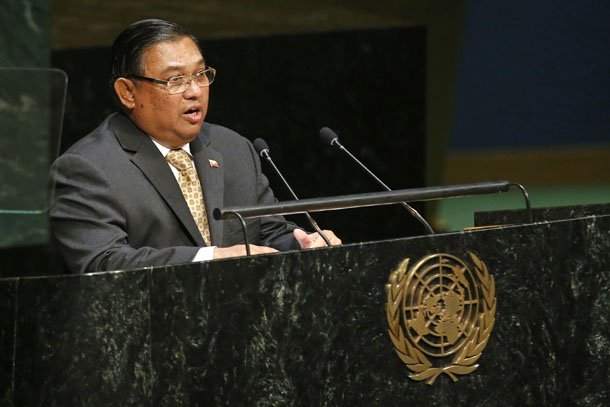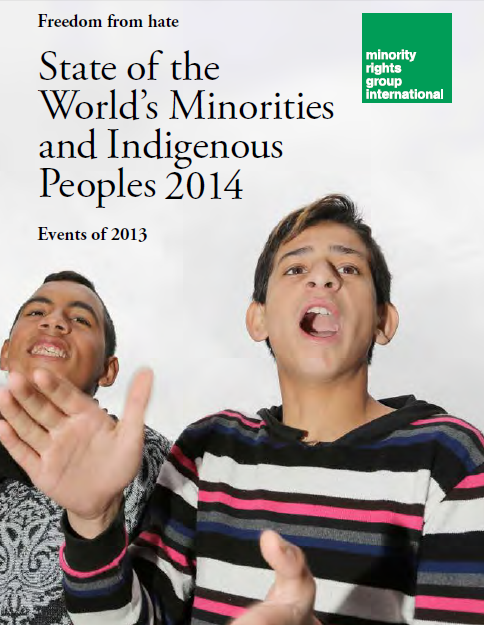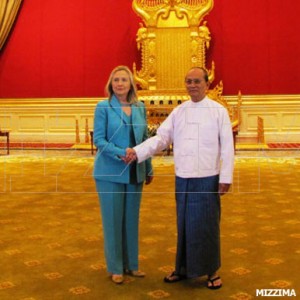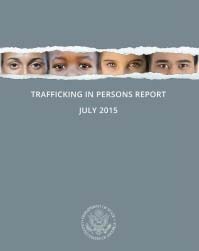Posts Tagged ‘US’ (12 found)
Trafficking in Persons Report 2015
BURMA: Tier 2 Watch List
Burma is a source country for men, women, and children subjected to forced labor and for women and children subjected to sex trafficking. Some Burmese men, women, and children who migrate for work abroad—particularly to Thailand and China, as well as ther countries in Asia, the Middle East, and the United States—are subjected to forced labor or sex trafficking. Men are subjected to forced labor in the fishing, manufacturing, forestry, and construction industries abroad, while women and girls are primarily subjected to sex trafficking, domestic servitude, or forced labor in garment manufacturing. NGOs report an increase in the number of Burmese males transiting Thailand en route to Indonesia and Malaysia, where they are subsequently subjected to forced labor, primarily in the fishing industry. Some Burmese men in the Thai fishing industry are subjected to debt bondage, passport confiscation, or fraudulent recruitment; some are also subjected to physical abuse and forced to remain aboard vessels in international waters for years. Reports indicate some Rohingya asylum seekers transiting Thailand en route to Malaysia are sold into forced labor on Thai fishing boats, reportedly with the assistance of Thai civilian and military officials. Burmese women are transported to China and subjected to sex trafficking and domestic servitude through forced marriages to Chinese men; Burmese government officials are reportedly occasionally complicit in this form of trafficking […]
• • •Press Release: US Government Needs to Step Up to Avert Growing Humanitarian Disaster of Rohingya Refugees
(Washington DC, May 18, 2015) – Today, US Campaign for Burma calls on the U.S. government to take leadership in providing immediate humanitarian assistance to the Rohingya refugees as well as putting effective pressure on the Burmese government to end its systemic ethnic cleansing program of the Rohingya […]
• • •The Shell Starts to Crack? Real Owners of Myanmar’s Oil and Gas Come Forward
Corrupt politicians all over the world use companies and trusts with hidden ownership to seize public property worth billions of dollars. This deprives ordinary citizens of money that should be spent on development and empowers unaccountable elites, often helping them gain and maintain power at the expense of democracy, human rights and peace.
Revealing the real people behind companies is critical to achieving genuine reform in Myanmar, where military families and crony tycoons have long benefited from control of natural resources like gas and gemstones. This is a critical time—in July 2014, Myanmar became a candidate member of the Extractive Industries Transparency Initiative (EITI), a global transparency standard which recommends that the
identities of individuals who own and control oil, gas and mining companies are published. If Myanmar can meet the standard, it will go a long way to addressing the question of who really owns the companies that control the country’s most valuable natural assets […]
“Winds of Change” Blow a Gale of Human Rights Abuses
 Burma’s Foreign Minister, Wunna Maung Lwin, gave a glowing report on the progress towards democracy and respect for human rights in Burma at the UN General Assembly (UNGA) yet given the deteriorating human rights situation on the ground, it is difficult not to view his words as a North Korean-esque sting in the tail.
Burma’s Foreign Minister, Wunna Maung Lwin, gave a glowing report on the progress towards democracy and respect for human rights in Burma at the UN General Assembly (UNGA) yet given the deteriorating human rights situation on the ground, it is difficult not to view his words as a North Korean-esque sting in the tail.
Wunna Maung Lwin specifically requested that Burma be taken off the agenda of the Human Rights Council as well as the Third Committee of the UNGA, citing that “all major concerns related to human rights have been addressed to a larger extent in the new Myanmar.” Yet on closer inspection, this statement is preposterous, with the realities on the ground providing a striking contrast to these words.
Remarking on the peace process, the government is apparently “serious in its commitment” to making this work. The problem is that the government and the Burma Army say and do different things. As the government is making promises to ethnic armed groups, the Burma Army is still launching offensives in Kachin State and northern Shan State. Even with groups that have a ceasefire, the Burma Army continues its aggression, as seen in Kyeithi Township, Shan State over the weekend where it attacked Shan State Army – North positions yet again. Around 300 villagers have been forced to flee in this township alone in recent months due to attacks. This is emblematic of the current state of the peace process, where too much attention has been placed on the signing of a nationwide ceasefire agreement. Yet as recent clashes indicate, a ceasefire simply isn’t enough to rein in the Burma Army, and this state of affairs remains volatile, as the recent briefing paper produced by Burma Partnership explains […]
• • •State of the Word’s Minorities and Indigenous Peoples 2014
 Hate crime towards minorities and indigenous peoples is a daily reality across Asia but is often ignored by the governments of the region, Minority Rights Group International (MRG) warns in its annual report. This year’s flagship report, State of the World’s Minorities and Indigenous Peoples 2014, is themed around ‘Freedom from Hate’ and shows that a worrying trend of vilification and hostility towards minorities and indigenous peoples has spread across the region.
Hate crime towards minorities and indigenous peoples is a daily reality across Asia but is often ignored by the governments of the region, Minority Rights Group International (MRG) warns in its annual report. This year’s flagship report, State of the World’s Minorities and Indigenous Peoples 2014, is themed around ‘Freedom from Hate’ and shows that a worrying trend of vilification and hostility towards minorities and indigenous peoples has spread across the region.
A key aspect of hate crime and hate speech is its invisibility, especially when governments or societies overlook or tolerate entrenched patterns of discrimination against particular communities, says MRG. Across Asia, governments have failed to provide adequate protection to its minority and indigenous populations.
“Hate crimes have been able to flourish in Asia largely as a result of the complicity or support of politicians who stand to gain from the persecution of minorities,” says Mark Lattimer, MRG’s Executive Director. “Hate speech goes unchallenged and crimes are often under-acknowledged and under-reported, enabling perpetrators to operate with impunity.” […]
• • •U.S. Companies Report on Burma/Myanmar Investments
Reporting Requirements Spur Disclosures, But Questions Remain (Washington, D.C.)—Today, the second set of annual reports pursuant to the U.S. Government’s Burma Responsible Investment Reporting Requirements was published. The reports include disclosures related to human rights, workers’ rights, the environment, anti-corruption, land acquisition, revenue transparency and military communications. “We welcome the newly submitted reports, and look forward to engaging […]
• • •Too Much Too Soon: US Lifting of Sanctions Risks Perpetuation of Human Rights Violations
 On June 14, Daw Aung San Suu Kyi, speaking at the annual ILO conference in Geneva, warned the international community against dealing with the Myanma Oil and Gas Enterprise (MOGE), “The Myanma Oil and Gas Enterprise … with which all foreign participation in the energy sector takes place through joint venture arrangements, lacks both transparency and accountability at present.”
On June 14, Daw Aung San Suu Kyi, speaking at the annual ILO conference in Geneva, warned the international community against dealing with the Myanma Oil and Gas Enterprise (MOGE), “The Myanma Oil and Gas Enterprise … with which all foreign participation in the energy sector takes place through joint venture arrangements, lacks both transparency and accountability at present.”
Despite this warning, on July 11, the US issued an executive order allowing American companies to invest in Burma’s oil and gas sector, and specifically with MOGE, “Today, the United States is easing restrictions to allow U.S. companies to responsibly do business in Burma.”
Daw Aung San Suu Kyi’s concerns with MOGE stem from the fact that it is a military controlled, state enterprise that has long been associated with some of the gravest human rights abuses documented in Burma, predominantly in ethnic nationality areas where the country’s natural resources are concentrated […]
US Decision to Ease Myanmar Sanctions Must be Coupled with Assistance in Developing Legislation and Rigorous Assessment of Investments
The ASEAN Inter-Parliamentary Myanmar Caucus (AIPMC) today urged caution for investors seeking to do business in Myanmar and called on the United States, ASEAN, the World Bank, the International Monetary Fund and other international bodies to assist Myanmar in developing rigorous business and investment laws that will help to ensure investments into Myanmar meet international ethical standards and do not fuel further human rights abuses or undermine the fragile reform process […]
• • •Burma: US Backtracks on ‘Responsible Investment’ Pledge
Business Reporting Requirements Won’t Deter Abuses, Corruption
The new United States government policy allowing business activity in Burma’s controversial oil sector with reporting requirements will not adequately prevent new investments from fueling abuses and undermining reform, Human Rights Watch said today.
The Obama administration announced that it will waive longstanding US sanctions on investment and financial services in Burma […]
• • •Breaking: US Government Eases Sanctions on Burma
ERI concerned about risks for human rights, environment
ERI is greatly concerned by today’s announcement that the U.S. will issue General Licenses authorizing U.S. companies to do business in Burma without abiding by international best practices on human rights, environmental performance, and financial transparency. The construction of foreign-owned oil and gas pipelines continues to contribute to conflict and human rights abuses in ethnic minority areas such as Shan State, and companies investing in infrastructure development cause community suffering through forced displacement and environmental destruction throughout Burma […]
• • •










 All posts
All posts